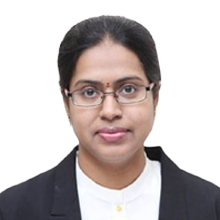Best Rheumatologist in India
A rheumatologist is a doctor who specializes in the diagnosis and treatment of diseases that inflict the bones, muscles, joints, tendons, and ligaments. He treats a condition called rheumatism in which joints are inflamed. He treats patients with a group of diseases, collectively called “systemic autoimmune disease” also called connective tissue disease or collagen vascular disease. This set of diseases occurs when a person’s body is attacked by its own immune system and results in inflammation in many places in the body such as joints, where it manifests as pain, swelling, and organ damage.
Day time OPD:
MON - SAT : 10:00 AM - 03:00 PM
Day time OPD:
MON - SAT : 10:00 AM - 04:00 PM
Faq’s
Who is the best rheumatologist in India?
There are about 100 best rheumatologists in India who have rendered esteemed services and have accumulated a wealth of knowledge as leading rheumatologists.
Which is the best rheumatologist hospital in India?
Yashoda Hospitals are one of the best rheumatology hospitals in India. It provides world-class facilities, infrastructure, and medical expertise.to treat rheumatic patients. The hospital has a dedicated staff consisting of expert doctors in the field of rheumatology. It is a multi-specialty hospital that provides complete facilities with respect to diagnosis and treatment.
What conditions does a rheumatologist treat in India?
There are about 100 different types of rheumatology. The conditions treated by a rheumatologist are:
- Vasculitis
- Lupus
- Antiphospholipid syndrome
- Scleroderma
- Rheumatoid arthritis
- Osteoarthritis
- Rheumatoid arthritis
- Musculoskeletal pain disorders
- Osteoporosis
- Gout
- Myositis
What procedures and surgeries do rheumatologists do?
When a patient’s condition does not improve with drugs and deteriorates such as during joint damage, surgery is advised. The hip and knee joints are replaced in rheumatoid arthritis, in case of difficulty in knee movement, knee replacement surgery is done. Ball-socket joint is replaced in hip replacement surgery. Synovectomy and carpal tunnel release surgeries are also performed by them.
Why are the Yashoda Hospitals in India the best rheumatology hospitals in India?
The Yashodha Hospitals, Hyderabad, are gaining prominence for their specialties in rheumatology. Their doctors work in collaboration with experts from all over the world to provide the best treatment for rheumatology diseases. Best facilities and tools are used and the hospital is associated with research and development to find new possible therapies in this field.
Who is a rheumatologist?
A rheumatologist has a subspeciality in internal medicine and specializes in the diagnosis and treatment of rheumatic diseases. Rheumatic diseases belong to a class of diseases called autoimmune diseases. He is also involved in surgery of joints such as knee replacement surgery, hip joint surgery, synovial replacement surgery, and carpal tunnel release surgery.
What does a rheumatologist do?
Rheumatologists diagnose and treat patients with rheumatic diseases mainly concerned with the immune system and skeletal system of the body. He treats immune-related issues with diseases like systemic lupus psoriatic arthritis, erythematosus, and ankylosing spondylitis. He conducts hip and knee replacement surgery.
What can a rheumatologist diagnose?
A rheumatologist performs tests to check for inflammation in the body. If the test shows higher levels of white blood cells, antibodies, and inflammatory products in the blood laboratory screening tests like acute phase reactants, either the C-reactive protein (CRP) or erythrocyte sedimentation rate (ESR). A higher level of these confirms rheumatism.
When should I see a rheumatologist?
When your muscle and joint pain lasts for a longer time, you experience pain in multiple joints, and pain is associated with fever and rashes. If you are over 50 and have recurring headaches, then you need to visit a doctor. After your general physician evaluates whether it is a temporary condition or due to inflammation caused by an underlying rheumatic condition, then he recommends you to a rheumatologist.
For further information contact our experts at Yashoda Hospitals.







 Appointment
Appointment WhatsApp
WhatsApp Call
Call More
More

